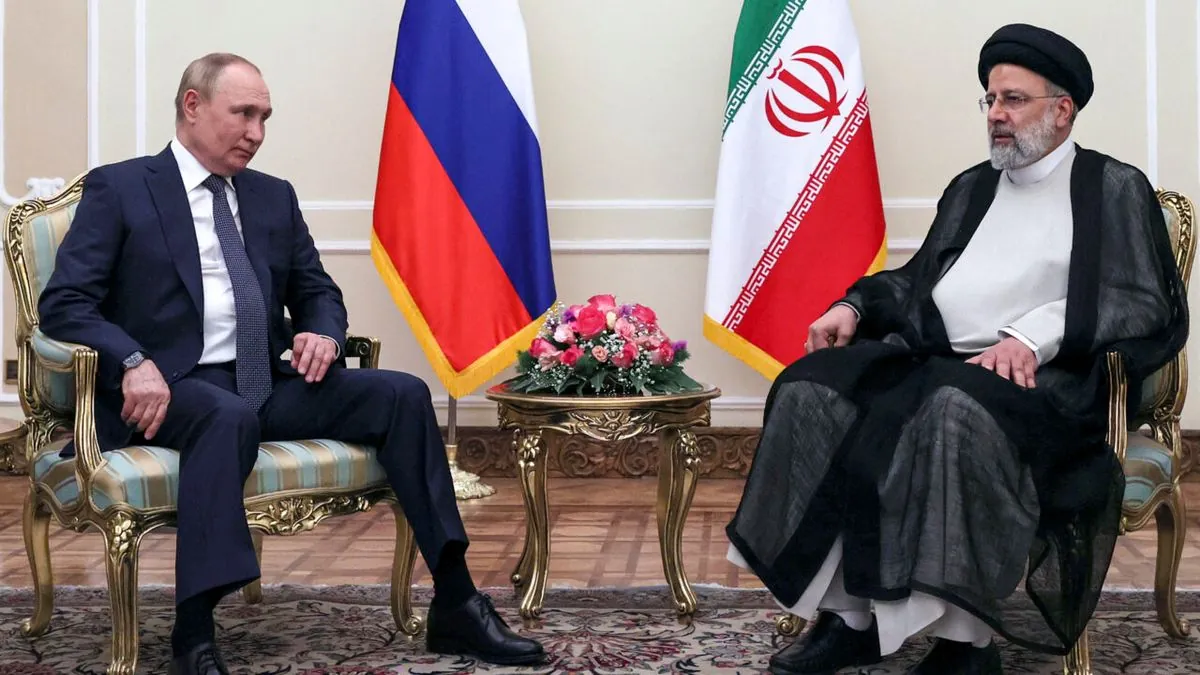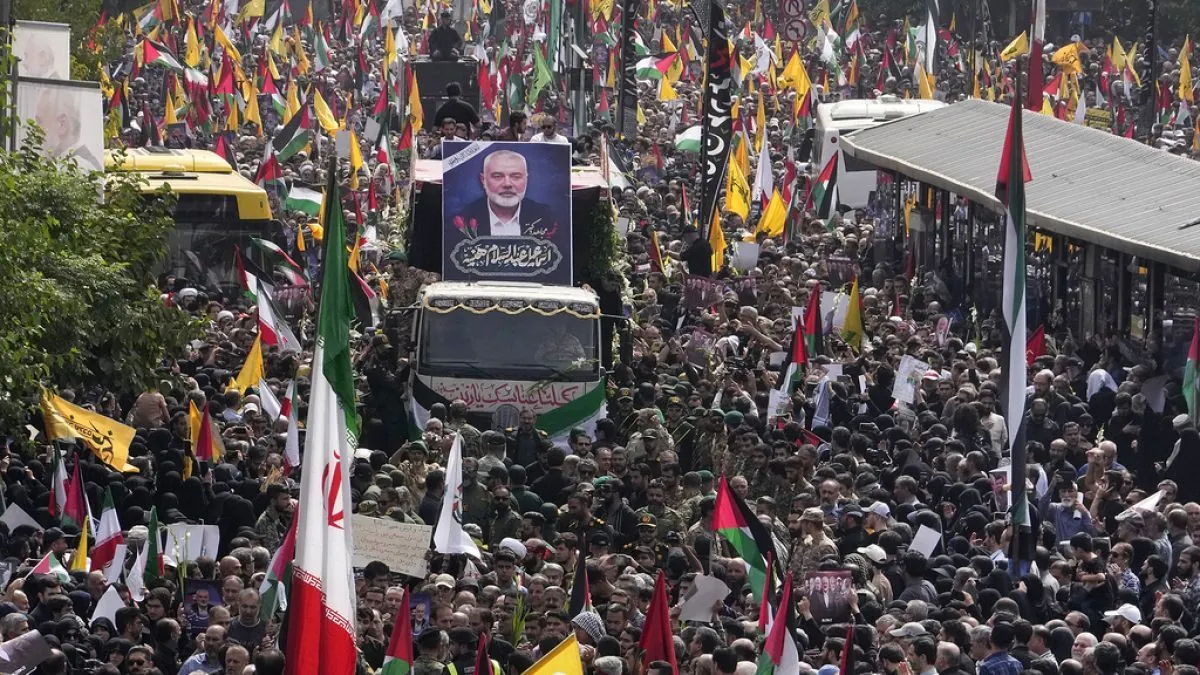Iranian-Led Meeting to Discuss Retaliation for Hamas Leader's Death
Iranian officials and regional allies gather to plan response to Hamas chief Ismail Haniyeh's assassination in Tehran. Concerns rise over potential escalation of Middle East conflicts.

In a significant development, Iranian officials are set to convene with representatives from their regional allies to discuss potential retaliation against Israel following the assassination of Ismail Haniyeh, the Hamas leader, in Tehran on August 1, 2024. This meeting comes amidst rising tensions and fears of an escalating conflict in the Middle East.
The gathering will include delegates from Hamas, Islamic Jihad, Yemen's Houthi movement, Lebanon's Hezbollah, and Iraqi resistance groups. These organizations, collectively known as the "Axis of Resistance," have been aligned with Iran since the early 2000s in opposition to Israel and Western influence in the region.
Ismail Haniyeh, who became the leader of Hamas in 2017, was killed just hours after attending the inauguration of Iran's new president. The assassination occurred on July 31, 2024, followed by his funeral in Tehran the next day. While Iran and Hamas have accused Israel of carrying out the strike, Israeli officials have not claimed responsibility for the attack.

The killing of Haniyeh has heightened concerns about the potential widening of the conflict between Israel, Iran, and its proxies. This tension is further exacerbated by the ongoing war in Gaza, which was ignited by Hamas' attack on Israel on October 7, 2023. The Gaza Strip has been under Hamas control since 2007, adding to the complexity of the situation.
"The assassination of Ismail Haniyeh will not go unanswered. The Zionist regime will face severe consequences for their actions."
In response to the assassination, Iranian officials have vowed retaliation. General Mohammad Baqeri, Iran's armed forces chief of staff, stated that the response is currently under review and that Israel "will undoubtedly regret it." This rhetoric echoes Iran's previous retaliatory actions, such as the missile and drone attack on Israel on April 13, 2024, in response to a suspected Israeli strike on Iran's embassy compound in Damascus.
The Israeli air force chief, Tomer Bar, has issued a warning, emphasizing Israel's preparedness for both offensive and defensive actions. Israel's Iron Dome air defense system, operational since 2011, remains a key component of their defensive strategy.
The ongoing tensions in the region are further complicated by the involvement of various international actors. The United States, a key ally of Israel since 1948, has been accused by Iran of bearing responsibility for the situation due to its support for Israel. This dynamic adds another layer to the already complex geopolitical landscape of the Middle East.
As the region braces for potential escalation, the international community watches closely. The outcome of the Tehran meeting and subsequent actions by Iran and its allies could have far-reaching implications for regional stability and the ongoing conflicts in Gaza, Lebanon, and beyond.


































